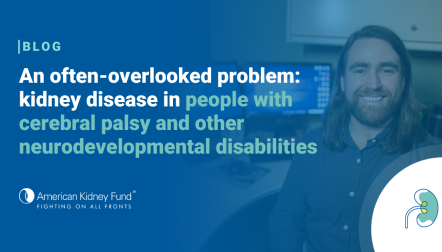
Blog post
Matters of the heart… and kidneys

February is American Heart Month, a month dedicated to raising awareness of the importance of a healthy heart and encouraging healthy habits that help reduce the risk of heart disease. According to the Centers for Disease Control and Prevention (CDC), heart disease is the leading cause of death among Americans with one person in the U.S. dying every 34 seconds from heart disease. Furthermore, approximately 805,000 people in the U.S. have a heart attack every year and 20.1 million adults 20 years or older have coronary artery disease (CAD) – damage or disease in the major blood vessels (the most common form of heart disease).
So, what do these heart disease statistics have to do with kidney disease? More than you may realize! In honor of American Heart Month, here are four things you may not know about the connection between your heart and kidneys:
1. Heart disease can cause kidney disease… and vice versa!
Kidney disease can cause heart disease, but heart disease can also cause kidney disease.
When you have kidney disease, your heart has to pump harder to get blood to your kidneys, which can put stress on your heart and lead to heart disease over time. Also, if your kidneys are damaged, they do not filter your blood as effectively, leaving extra fluid and waste in your bloodstream. If that extra fluid and waste builds up in your body, it can damage your other organs – including your heart.
Heart disease is any heart or blood vessel problem that keeps your heart from pumping blood as well as it should. This includes CAD, blood clots, heart attacks or problems with your heart's muscles, valves or heartbeat. When you have heart disease, your heart cannot pump blood through your body as effectively. Your body compensates for this by retaining more salt and water and putting more pressure on your veins. Any of these changes make it harder for your kidneys to perform their job, ultimately damaging them and leading to kidney disease.
2. Heart disease is the number one cause of death among people on dialysis.
Although dialysis is one of the life-saving treatments available for people with kidney failure, it puts you at an increased risk of heart problems. Heart disease is the number one cause of death among people on dialysis. There are several reasons for this unfortunate statistic.
First, many people on dialysis already struggle with heart problems as – like we said above – long-term kidney damage can cause heart disease. Second, many people on dialysis also struggle with high blood pressure, which means the force of your blood in your blood vessels is too strong and can damage your heart or kidneys. Third, if you have kidney failure, you need to be careful about managing your potassium, as your kidneys can no longer control that balance. Potassium controls muscle contractions, and the most important muscle is your heart. If your potassium becomes unbalanced, it can put you at risk for heart disease or heart failure.
People on dialysis also die from heart disease because of complications from anemia, a common problem people on dialysis face that happens when there are not enough healthy red blood cells in your body, which carry oxygen through your body. They are also at an increased risk of stroke, which happens when the supply of blood to the brain is either reduced or blocked. Furthermore, dialysis puts general stress your body as you go from a state of high fluid and toxin concentration to none in a short period of time during treatment.
3. Your kidneys help regulate your blood pressure and create red blood cells.
In addition to filtering your blood, your kidneys also affect your cardiovascular system in other ways. Healthy kidneys produce a hormone that helps regulate your blood pressure – helping to prevent your heart from pumping blood too forcefully or not forcefully enough. They also produce a hormone called erythropoietin (EPO), which sends a signal to the body to make more red blood cells. If your kidneys are not working as well as they should, they cannot make enough EPO. Without enough EPO, your body does not know to make enough red blood cells. This means fewer red blood cells are available to carry oxygen through your body, leading to anemia and heart problems.
4. The best way to prevent both heart and kidney disease is to prevent or manage the conditions that can lead to them.
These conditions include diabetes, high blood pressure and anemia. All three can cause both kidney disease and heart disease. Keeping your diabetes, high blood pressure or anemia under control is the best way to prevent them from progressing to the point of causing kidney or heart disease. Fortunately, when they are identified early, they can often be managed with lifestyle changes including:
- Following a kidney-friendly and/or heart-healthy eating plan
- Being active most days of the week
- Avoiding the use of tobacco products
- Lowering your stress levels.
Learn more about the connection between your heart and kidneys on our website or by watching these webinars: How to be a heart healthy kidney patient: The key role of sodium and fluid or Heart disease and kidney disease - what's the connection?
Additionally, you find resources on heart-healthy living on the National Heart, Lung and Blood Institute's American Heart Month webpage.




